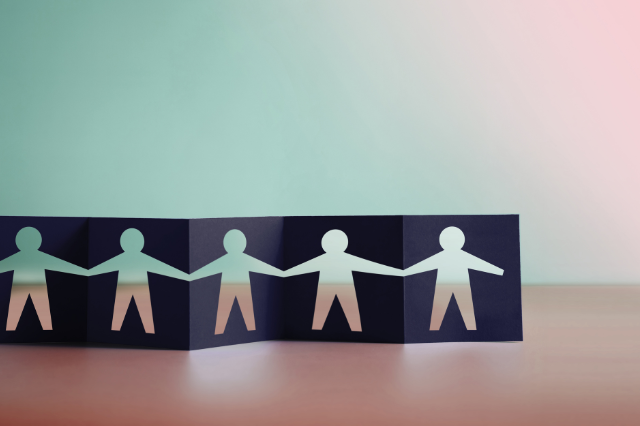Partner insights: The power of digital tools for children and young people’s mental health and wellbeing
The launch of Aye Mind is the result of months of hard work between the Mental Health Improvement Team at NHS Greater Glasgow and Clyde and local partners. Everyone involved shared the same belief that digital technologies have a key role to play in child and youth mental health and wellbeing.
We had the privilege of sitting down recently with three of those partners who helped make that vision a reality, Frankie Robertson (East Renfrewshire HSCP), Orielle Taylor (YouthLink Scotland), and Andrea Taylor (Glasgow School of Art), to discuss their views on the project and the use of digital technology in this space.
Here are some of the highlights from our conversation:
Q1: Why did you want to get involved in redeveloping Aye Mind?
Frankie: “Aye Mind was a great one stop shop for mental and emotional wellbeing support for young people. Having one place to visit that has a wealth of supports and information prevents practitioners and young people trawling the internet in search of support. It creates a safe space to explore digital technologies that may be helpful. It has been a great opportunity to review this work and build on its success.”
Orielle: “Aye Mind is a great support for mental and emotional wellbeing for young people and an invaluable resource for youth workers. This was a great opportunity to build on the success of the original Aye Mind site and create a collaborative resource that can expand over time and something YouthLink Scotland wanted to support.”
Andrea: “I wanted to get involved because I have a research interest in digital technologies for health and care, including mental health. I think Aye Mind is needed because while there is growing evidence of the benefits of digital technologies for mental health, my own research has indicated limited awareness and engagement with such resources among young people and adults who support young people.”
Q2: In what ways do you think digital technologies can support the mental health and wellbeing of children and young people?
Frankie: “Digital technologies allow support to be accessed at times when services/help isn’t available, it’s a good support to people when they are keen to access support on their own, at a time that’s right for them.”
Orielle: “Digital technologies allow support and information to be accessible, easily updated and provide a space to share best practice between practitioners which can help improve mental health and wellbeing support to young people.”
Andrea: “Digital technology widens the opportunities for mental health promotion, prevention, and treatment. Ways include: customisation and personalisation to tailor content to the individual’s needs and goals; a more anonymous means of accessing content, important given the stigma associated with mental health; widened access for hard-to-reach groups; access to content 24 hours a day; and opportunities for social support and connectedness.”
Q3. Why do you think it is important people working with children and young people are confident in using digital technologies?
Frankie: “Practitioners should be able to explore digital technologies and feel comfortable to know where to go to access/signpost to appropriate supports. We must evolve with the many options of support and digital technology is an ever-growing/developing area, Aye Mind helps navigate some of this.”
Orielle: “Practitioners need to be able to confidently support young people in different spaces and meet them where they feel comfortable, which may be online. Being confident using digital technologies can help support young people and keep them safe in online spaces.”
Andrea: “I think it is important that people working with young people are aware of good quality digital technologies for mental health and are confident in their use. E.g., to positively impact on young people’s understandings and recognition of what information and support may be available and helpful, and to help minimise the risks involved with digital technologies.”
Q4. If you could say one thing to someone working with children and young people who is nervous about using digital technologies, what would it be?
Frankie: “Give it a go! Why not try it out for yourself and see how you feel? The more familiar you become with digital technologies the easier you can explain and signpost young people to them.”
Orielle: “Play around, be curious, and explore! As you become confident using digital technologies, you will feel more confident supporting young people in these digital spaces.”
Andrea: “Hmm, perhaps to take steps to become better informed about digital technologies for mental health, and importantly, how to identify/judge good quality resources. Easier said than done! Hopefully, Aye Mind presents one helpful starting point.”
One thing that became clear when we chatted to our partners was that it is absolutely critical that anyone who works with children and young people needs to keep abreast of an ever-evolving digital landscape.
There are so many things we can already be using to our advantage when supporting child and youth mental health and lots more digital tools are launched every day. Thanks to the support of our partners, we have created Aye Mind to help you tap into that potential today right here on this website. We will continue to ensure these resources stay up to date so that this support can continue tomorrow.

Share this blog
